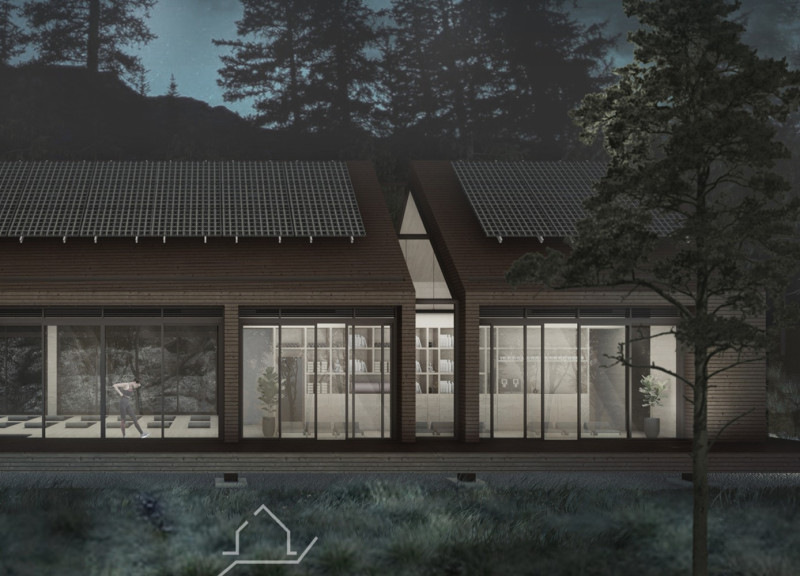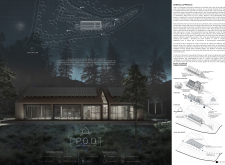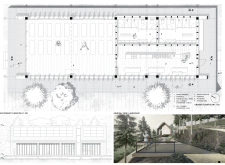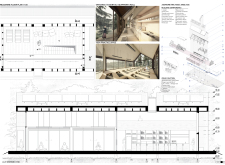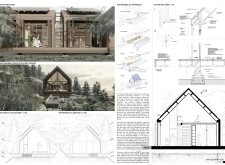5 key facts about this project
The design is situated in a quiet area that promotes reflection and a sense of peace. It draws on the principles of yoga and mindfulness, creating spaces designed for both social gatherings and personal retreat. The concept is rooted in simplicity and a relationship with nature, evident in the layout that seeks to provide comfort and clarity amid life’s complexities.
Conceptual Framework
The design encourages self-discovery and tranquility. The layout includes a mezzanine floor for resting, a main yoga hall for practice, and important facilities such as shower changing rooms and an entrance hall. A zen garden weaves through the site, starting at the entrance and flowing into a sunset garden, emphasizing the connection to the surrounding environment.
Sustainability Initiatives
Environmental sustainability is a key focus of the design. The building aims to minimize carbon emissions during its lifespan, incorporating systems that enhance energy efficiency. A double-layer façade controls heat and sunlight, making the interior comfortable while connecting it to the outdoors. This transparency allows occupants to feel engaged with their surroundings.
Materials and Energy
Wood is the main material used in the construction, chosen for its beauty and compatibility with sustainable goals. It enhances the project’s overall character and provides a warm atmosphere. Solar panels supply hot water and electricity, while a ground source heat pump offers efficient heating and cooling. A rainwater collection and recycling system is also part of the design, enabling the use of gathered water for irrigation and further supporting the environmental commitment.
Design Details
The composition reflects a thoughtful blend of function and nature. Different spaces are arranged to allow for various uses, making the experience adaptable for users. The zen garden not only serves as a place for social interaction but also invites quiet contemplation, embodying the project’s intent to foster a deeper connection with the natural world.


